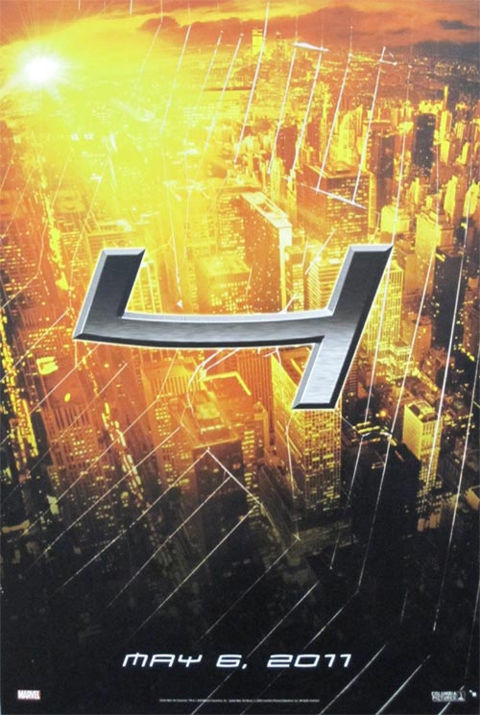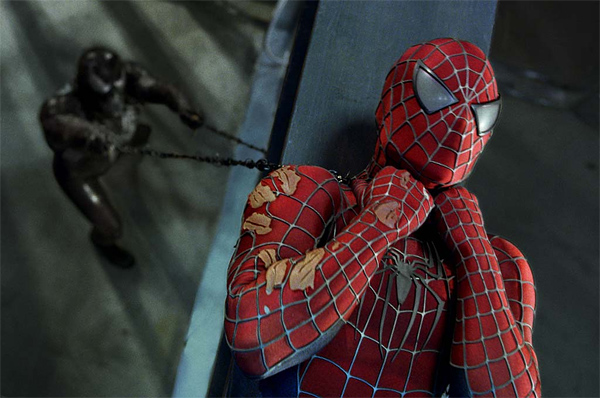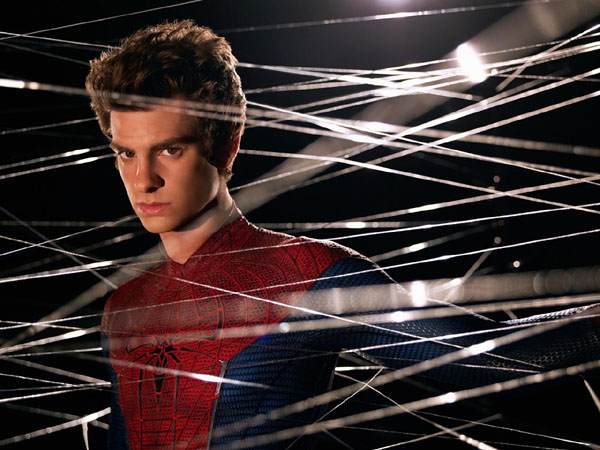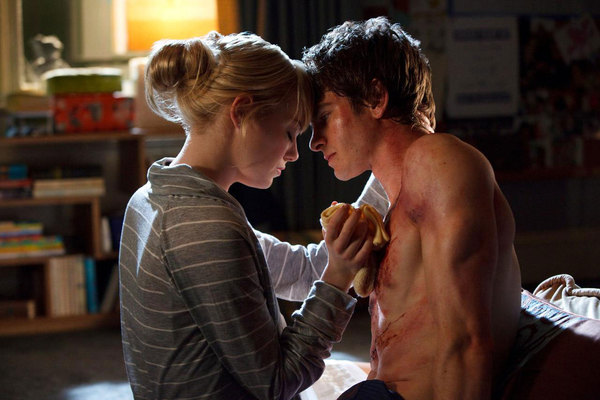Sony’s reboot of Spider-Man is still baffling to the general public. Why start all over again? Why retell Peter Parker’s origin story when an overwhelming majority of moviegoers know it by heart?
Many people are of the camp that a Spider-Man reboot was and is completely unnecessary, that if the characters had to be recast, there’s no reason the story had to involve a complete rewrite of the lore established by the first three films. Well, I disagree. The unraveling of “Spider-Man 4” might just turn out to be the best thing to happen to the franchise. An early 76% on Rotten Tomatoes for Marc Webb’s The Amazing Spider-Man is hopefully an indication that I’m right.

Our friendly neighborhood web-slinger was in theaters a mere five years ago, and he was killing it. Spider-Man 3 will forever be known for widely disappointing audiences (critics didn’t mind it, actually), but it opened to a then all-time best $151.1 million and grossed $890.9 million worldwide, the best of the series.
Those numbers don’t exactly suggest throwing everything out and going back to square one. In fact, that was never in the plans for Sony.
Director Sam Raimi began developing “Spider-Man 4” back in 2008 with stars Tobey Maguire and Kirsten Dunst expected to return and a May 2011 release in place. Sony hired James Vanderbilt to write it, as he had impressed the studio with his script for what would actually become Tuesday’s The Amazing Spider-Man.
 But in January 2010, things changed dramatically. The script had been rewritten twice by Pulitzer winner David Lindsay-Abaire and future The Hunger Games writer/director Gary Ross, yet Raimi still expressed a number of problems with the villain and it became clear that there were disagreements with the studio about the the direction of the story, echoing a lot of the problems that hurt Spider-Man 3. With May 2011 looking less and less likely due to production delays, Sony and Raimi parted ways and The Amazing Spider-Man was born.
But in January 2010, things changed dramatically. The script had been rewritten twice by Pulitzer winner David Lindsay-Abaire and future The Hunger Games writer/director Gary Ross, yet Raimi still expressed a number of problems with the villain and it became clear that there were disagreements with the studio about the the direction of the story, echoing a lot of the problems that hurt Spider-Man 3. With May 2011 looking less and less likely due to production delays, Sony and Raimi parted ways and The Amazing Spider-Man was born.
So a reboot wasn’t exactly what either side had in mind, but it was the only logical way to proceed. Sony Pictures Co-Chair Amy Pascal has said in retrospect that they were “looking for a story that wasn’t there.”
They should’ve known that at the start. At the time, every movie with a “4” after it was bad for a reason. It’s tough to find the right vision and the right story to continue a franchise with all the same players beyond the natural beginning, middle and end feel of a trilogy. Only book adaptations such as “Harry Potter” succeeded at doing so because the story existed previously and was written in an arc designated to be that long.
Foresight is big in the quality control of a blockbuster franchise these days, and the best example of blockbuster quality is hands down Christopher Nolan’s The Dark Knight trilogy, which provides all the justification you need for the Spidey reboot.
Nolan came to the Batman character with a specific vision: reinterpret Batman’s origins and cast him in a gritty Gotham City with ideas and themes securely grounded in our own world. Unsure of its success, a simple Joker card at the end of Batman Begins allowed us to imagine what an expanded, dark Batman universe would look like without a story needing to be in place.
Who can say what Nolan already knew or didn’t know about the direction of the sequel, but after The Dark Knight got the green light he could start to envision a full arc for his Bruce Wayne.
Sam Raimi built a very similar arc in the first two films with Peter Parker, but when Sony forced Venom into the third film, it disrupted it. Alvin Sargent and Ivan Raimi did their best to tie up the film’s superfluous subplots involving three villains and four romances between five people, but we never felt the gravity of the theme of choice that the script suggested at the end. The ending of Spider-Man 3 felt ambiguous. Peter and Mary Jane clearly love each other, but they’ve been through hell, and Peter seems kind of okay with life as Spider-Man. The end.

Where would they have gone with Raimi’s Spider-Man after that? The romance had gone through every test imaginable; Peter had wrestled with the idea of remaining Spider-Man and blamed himself for everyone he loves being in danger more times than we could count. Peter Parker needed new life, new vision — not just a new villain.
That still doesn’t answer the question of why a reboot of the origin story? Why bring back the nerdy high schooler bitten by a radioactive spider? Do we seriously have to watch Uncle Ben die again after Peter’s regret was the centerpiece of the first trilogy?
It can certainly be argued that we could pick up anew on a Spider-Man who has already existed for some time by in a world envisioned by another director, but go watch Superman Returns again and tell me how that idea works out.
Every hero needs a genesis, an origin that defines the hero he or she becomes. Without it, we simply can’t feel for the character the way we need to without it. One can’t simply transpose the origin story of Tobey Maguire’s Peter Parker onto Andrew Garfield. Even if Garfield tried to emulate Maguire, we would still identify him as someone new and different. At least The Amazing Spider-Man twists the origin enough to keep it fresh and brings a new villain into the fold.

The most notable films in which the actor playing a major hero changed without some form of a rehashed origin? Superman Returns, Batman Forever and Batman and Robin. The Incredible Hulk couldn’t gain enough traction despite being a decent film or at least superior to the first incarnation just five years earlier.
Five years is also the amount of time between the last two Spider-Man films. That’s what this is really all about, isn’t it? Time? The generation that enjoyed the Raimi films is expected to be the same generation to like Marc Webb’s version. How are we supposed to just embrace a new vision when the old one hasn’t even left our conscience (and is warmly embedded there aside from No. 3)?
The fact that Sony has to use it or lose it when it comes to the Spider-Man movie rights means the studio can’t just wait until the public is “ready” for a new Spider-Man, and it doesn’t help that investors would cry out if Sony just sat on its biggest property. (The studio has only three non-Spidey movies that rank in the Top 100 highest-grossing films of all time in North America, so Spidey is their lifeblood.)
The result: from a business perspective and a quality perspective, we are getting a new Spider-Man, and we’re getting him now. As movie-goers, we love continuity in films (I’d argue to a fault), but we’ve entered an era when the films we want continuity from happen to be the most profitable in the world.

Considering that audiences will pay for these films no matter which actor is behind what mask and we tend to forget the word continuity exists when we like what we see, there’s no stopping this, and it should be embraced.
If we want quality superhero films, we actually need to advocate for reboots. Filmmakers should be brought in to try out their vision and if it succeeds make a trilogy, then get out. Fresh minds, visions and ideas are needed for anything to survive long-term in this world, especially movies.
If Warner Bros. signed Christopher Nolan to three more Batman movies, you’d be dumb to wager that they’d all be as good as the first three (assuming “Rises” kicks ass). As talented a man as Nolan is, only so many more stories can be told in that same universe with the same characters before they wear thin.
There’s no historical precedent for successful and highly praised six-film franchise with no definitive source material, so audiences need to not be so delusional as to advocate for someone to try, even if it’s Nolan himself.
Every superhero movie franchise has been a re-imagining of a hero who existed before, even if it was the comics. Even those heroes are built on the foundations of others. The reason we love these stories is because they stay relevant throughout the generations, they can be interpreted and reinterpreted to find new meaning and relevance for their audience.
The reboot of Spider-Man might feel too soon or ill-advised for whatever reason, but timing is no reason to develop preconceived notions or dismiss the timeless process that is storytelling.